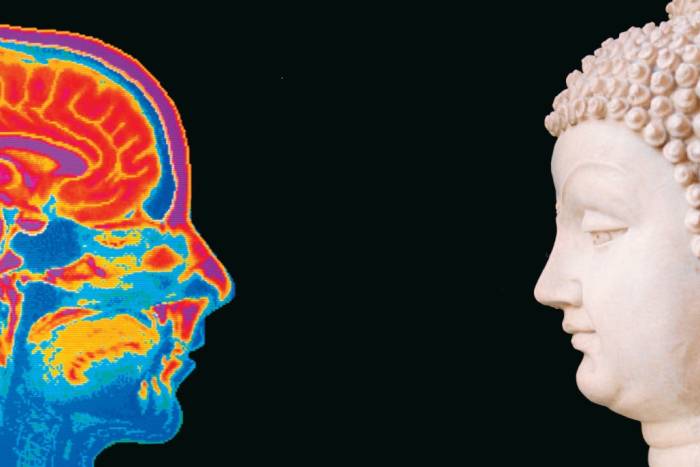The Burning Out Of Chet Baker's Voice
Chet Baker was one of the main exponents of the cool style. His fragile voice and nonchalant trumpet were juxtaposed with his rebel-without-a-cause look.
It’s likely that if Chet Baker had not discovered the trumpet, his fate would have been to embody one of those rebel idols that the immortal James Dean gave life to on the big screen. Not without reason did some call him the James Dean of jazz. Fortunately, when he was a teenager, his father gave him a trombone as a gift, which young Chet soon traded for a trumpet, in accordance with his size and aspirations. It was at that moment when one of the most sparkling figures of the 1950’s jazz scene, and one the greatest exponents of the cool style, was born.
Following an uncommon training, in which he combined academic studies with dabbling in small jazz clubs, the Yale musician played in bands with Vido Musso and Stan Getz, with whom he began to be recognized in the jazz circuit.
He would have his big break 1952, when he was chosen to play alongside the already legendary Charlie Parker. That was when Chet Baker’s career really took off. After participating in the Gerry Mulligan Quartet, Chet started his own band, recording his debut vocal album for Pacific Jazz Records. Chet Baker Sings from 1954 set his popularity, and led to his recognition as a singer.
Despite his success, or precisely because of it, Baker became a heroin addict. His unstable nature and his addiction led the musician to be incarcerated on several occasions. And his turbulent lifestyle began to hinder his musical career. In 1960 he was arrested in Italy and sentenced to spend a year and a half behind bars.
Popularity can be a gravestone for delicate spirits. With every note, Chet Baker seemed to rebel against the idea that the world had of him. His Apollonian face, which consecrated him since the very beginning as the pretty face of jazz, was disfigured in 1966 after he took a beating in San Francisco. His public appearances became fewer and further apart. The legend and the man fought to understand each other through the haze of opiates.
Many photographs show a crestfallen Chet Baker, barely supporting his head against his fragile body, just as a child presses himself against his mother’s lap. When he played his trumpet, he seemed to seek that same warmth.––As he also did when he sang. With closed eyes, Baker squeezed each word as if it were his last. His voice always sounded as the prelude to an extinction.
Slightly recovered from his addiction, he returned to the stage in 1973. And simultaneously, as a documentary about his life –eloquently called Let’s Get Lost– was being filmed; at the age of 58 his voice was permanently blown out. His childish gaze and his wrinkled cheeks, however, had been announcing his tragic demise long before.
Related Articles
Why shrinking the size of life is synonymous of well-being
One of the great misunderstandings regarding modern spirituality is that to achieve it requires many things: readings, food, exercise, travel, groups and techniques. But perhaps it should be suggested
What is energy medicine yoga?
Energy Medicine Yoga (EMYoga) is slightly different from other types of Yoga, but it provides the same benefits in addition to a few very specific ones. One of them is that it gives you much more in
Red tea, the best antioxidant beverage on earth
Red tea is considered to be the most unusual of teas because it implies a consistently different preparation process. ––It is believed that its finding came upon surprisingly when traditional green
Is the internet on the verge of self-awareness?
More than 50 years ago, Marshall McLuhan described technology as an extension of our brains, constantly mutating and branching out. “These new media have made our world into a single unit,” the
How art can help us to age, healthy
Perhaps many of us already well know the formula for aging in health and wellness. A balanced diet and, as much as possible, one that’s natural. Keep our brains active and stimulated. Preserve and
Earthanima: documenting the living language of nature
The basic intuition that the Earth is alive and that nature has a language through which it communicates with us is what prompted this wood-art project named Earthanima. For the past couple of years
Dialogue with the Dalai Lama on science and spirituality
The Dalai Lama has been interested in science since he was a child. Over the years he’s visited many laboratories and has attended conferences that discuss consciousness from the scientific point of
Brian Eno's literary recommendations to rebuild society
Artists and authors often get asked what books or records they’d take with them to a deserted island. On principle, this is naturally an extreme anthology: urgency and tragedy guide its selection. It
Bill Mollison, natural ideologue and father of permaculture
Permaculture has established itself as a path towards communitarianism, but one that is in full symbiosis with nature. In practice, it is more than just a combination of agriculture, horticulture
A New Year's resolution for the earth
Worrisome quantities of waste are generated by human populations. Especially in cities, these have reached unprecedented and alarming levels. A largely uncontrolled practice, it affects everything on










